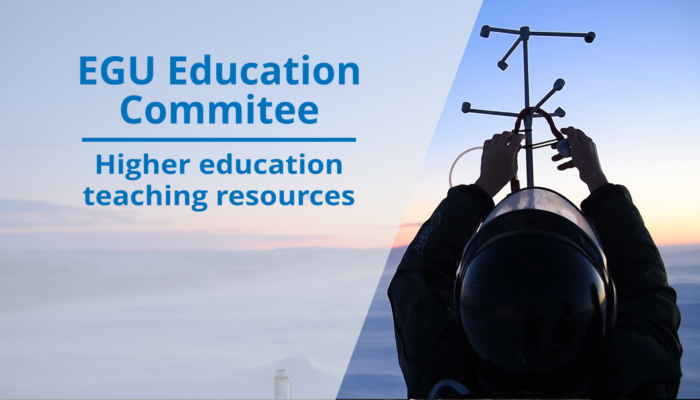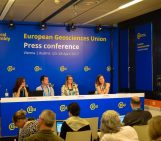
The European Geosciences Union (EGU) supports bringing science into the classroom at all learning levels, from schools to universities. Since the Higher Education Teaching grant programme launched in 2020, EGU has funded 24 projects to develop useful and freely available geoscience resources to university educators. This blog is part of a series of blogs highlighting the innovative and accessible resources developed by grant awardees to support teaching in higher education.
This teaching package delivers a curriculum which serves students from several disciplines, such as engineering, geoscience, astronomy, and social science. It provides training for engineering and science students, and networks students from around the world to conceptualize, propose, and potentially fund, build, and run a genuine Earth observation mission.
Target audience: undergraduate and graduate students. The material is also suitable to senior high school students.
Course content:
The curriculum teaches students how to think through and design effective research and community projects. Students will learn how to interview stakeholders, design good science questions, select appropriate instrumentation, schedule and budget their project, conduct a risk analysis, and evaluate their final work. At the end, students submit a project proposal that is capable of being funded.
Students are guided to:
- Conduct a stakeholder analysis and background research
- Identify good science questions (develop a science traceability matrix)
- Select appropriate instrumentation (finish a science traceability matrix)
- Determine your projects’ logistics (develop a mission traceability matrix, preliminary budget, and preliminary timeline)
- Develop a risk mitigation plan (conduct a risk analysis, prioritize project risks, iterate on your project design)
- Develop a project evaluation plan (implement evaluations a tvarious stages of your project)
- Develop a compelling project proposal that is capable of being funded
Course structure:
Week 1 – Getting Started (stakeholder analysis, background research)
Week 2 – Science Objectives (science traceability matrix)
Week 3 – Instrumentation (finish science traceability matrix)
Week 4 – Logistics and Operations (mission traceability matrix, budgets, schedules)
Week 5 – Risk Management (risk analysis, prioritization, mitigation, iterative design)
Week 6 – Project Evaluation (formative, process, summative evaluations)
The teaching material utilizes the Science Voices’ Greenworks network which supports educators in forming international collaborations and connecting with business partners, with the aim to help students implement their projects after they develop them.
The materials included in this Teaching Package have been created by Lev Horodyskyj from Science Voices and Tara Lennon from Arizona State University and its creation was supported by EGU, through the Higher Education Teaching Grants programme.
The material is available at here.
For more geoscience resources for higher education, please browse the teaching grant recipients for 2020, 2021, and 2023. More educational resources for teaching at university and other levels can be found on the EGU educational resources webpage.
If you’re interested in receiving funding to develop your own teaching resource, sign up to EGU’s monthly newsletter to keep updated when the next round of applications open and for other opportunities. For more information on the Higher Education Teaching Grant please contact the EGU Education Committee.

